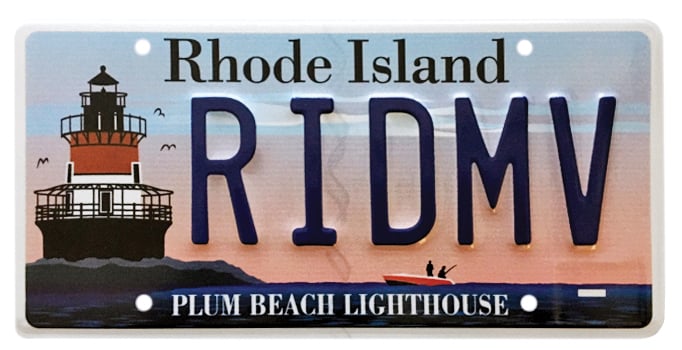Rhode Island
As R.I.’s temperatures grow hotter, local groups working to cool down ‘heat islands’ – The Boston Globe

Rhode Island is the smallest, yet most urbanized state in the nation. The state contains 139 square miles of impervious surfaces, amounting to 13 percent of its land area, according to a 2022 study. These surfaces form an “intricate network of interactions and conditions such as elevated surface and air temperatures,” according to the study.
People living in these densely populated urban areas face higher temperatures than those in more leafy locations, and the phenomenon is exacerbated as the climate heats up. Scientists and advocates use the term “heat island” to describe an area that experiences many more days of extreme temperatures than those mere miles away.
Across Rhode Island, advocacy groups are planting trees, turning parking lots into community gardens, offering cooling centers like the one at Emmanuel House, and advocating for utility justice so everyone has air conditioning and running water during heat waves. Their efforts often focus on the state’s densely populated urban areas, including Providence’s Silver Lake, Elmwood, and West End neighborhoods with population densities of 14,987, 15,793, and 17,245 per square mile respectively. In comparison, the city’s Blackstone neighborhood has a density of just 4,986 people per square mile.
Advocates said that “greening” neighborhoods by pursuing both on-the-ground actions and policy change will help keep them cooler as the planet warms.
Often this literally means dirty work. “It’s very tangible,” said Amelia Rose, executive director of Groundwork RI, which creates community gardens, offers summer jobs to Providence youth, and advocates for compost initiatives statewide. The organization’s work is “not just advocacy or going to the State House and lobbying for a bill,” Rose said. Those actions are critical, too, she said, but getting plants into the ground allows residents to see visible, immediate results.
“Healthy Neighborhoods,” one of Groundwork’s initiatives in Providence, promotes greenspaces as a way to promote healthier communities. Rose’s projects have reclaimed parking lots and used the space to create community gardens. The organization now owns and cares for a total land area of about a half-acre throughout Providence, including two residential housing-size lots. Other endeavors included the launch of its urban farm and greenhouse in 2015. Groundwork is leading an effort to create a composting hub in the West End, and organizing tree plants in an effort to increase green infrastructure.
“It’s a community pride type of thing. It changes the way people view their neighborhood,” Rose said.
Not only are higher temperatures less comfortable, people’s health suffers. People living in heat islands are often impoverished, and as a result they tend to have higher rates of diabetes, heart disease, and asthma. This makes them more vulnerable to heat stress than those living in greener, and therefore cooler, neighborhoods.
Marzullo said he has noticed that as temperatures rise, Emmanuel House residents experience visibly deteriorating health. “It’s very dangerous for some of my clients. The older clients, especially the clients that have breathing problems. … I see them coming in here, they’re beet red and purple,” he said.
Cassie Tharinger of the Providence Neighborhood Planting Program holds monthly tree-planting parties in Providence. The program focuses its efforts on the most vulnerable communities: densely built areas that experience eight to 10 days above 90 degrees every year. Elsewhere, near the coast, temperatures reach 90 degrees only about once a year, at the peak of summer heat, according to the Rhode Island Department of Environmental Management.
While some of this temperature difference stems from ocean breezes, urban heat islands endure disproportionately higher temperatures because of their built-up environments. Concrete and other common construction materials do not reflect light well; they absorb more heat and foster hot microclimates, according to a study in the International Journal of Environmental Monitoring and Analysis.
The Environmental Protection Agency defines heat islands as urbanized areas with structures such as buildings, roads, and other infrastructure which absorb more sun than natural landscapes. These surfaces re-emit that heat, increasing daytime temperatures so that these neighborhoods reach average temperatures that are about 1 to 7 degrees higher than those in outlying areas.
It’s important to employ a wide array of methods, said Jessica Wilson, design planner for the city of Lowell, Mass. Her office advocates for policies, plants trees, and designs parks for the city.
“Confronting environmental injustices means both on-the-ground work like planting trees, but also advocating for policy changes,” Wilson said.
“All the tree planting in the world, as much as that provides shade and a million benefits, on the hottest day of the year, that’s not enough,” she added.

High density means more buildings, more traffic, and more concrete. One area in Providence’s South Side has a 47 percent poverty rate and just a 6 percent canopy rate — the lowest percentage of canopy cover in all of Providence, according to the Tree Equity Score, which measures levels of tree canopy coverage in cities nationwide.
Neighborhoods with higher poverty rates and more people of color are also the neighborhoods with the least tree canopy. This lower income demographic is also at high-risk for health risks from extreme heat, according to the state Department of Health.
Environmental justice advocates, furious with the disproportionate impacts of urban heat islands on Rhode Island residents of color, pressed the state to protect residents from utility shut-offs during heat waves. In 2007, the state passed the nation’s first summer utility shut-off moratorium. When the state temperature average reaches 90 degrees, no households in the state can have their air conditioning, running water, or gas terminated by utilities.
While advocates have welcomed this step, the policy is “flawed,” said Camilo Viveiros, director of the George Wiley Center, a labor union that organizes for “utility justice.” Temperatures vary greatly statewide, and temperatures in urban heat islands are well above the 90 degree threshold even when the state average is well below it. Given the conditions of the policy and the varying conditions statewide, the moratorium rarely goes into effect.
Raffini, the youth program director for the Southside Community Land Trust, who only uses her first name, has lived in the South Side of Providence for most of her life, in a neighborhood that includes the most prominent heat islands in Providence.
Raffini said the ideal South Side neighborhood would provide safety, gardens, green space, and summer jobs for young people — including in community gardens. Central to the Southside Community Land Trust’s mission is integrating racial justice work with their hands-on gardening practices.
Any urban greening projects need to go hand-in-hand with education that links racial history with the importance of environmentalism. Not everyone is going to do this sort of work, Raffini said, but she encourages everyone to notice its value.
“I don’t want you to walk a mile in my shoes. I want you to stand in my garden,” she said.
Maya Kelly is a freshman at Brown University studying Urban Studies.

Rhode Island
RI Lottery Powerball, Numbers Midday winning numbers for March 4, 2026
The Rhode Island Lottery offers multiple draw games for those aiming to win big.
Here’s a look at March 4, 2026, results for each game:
Winning Powerball numbers from March 4 drawing
07-14-42-47-56, Powerball: 06, Power Play: 4
Check Powerball payouts and previous drawings here.
Winning Numbers numbers from March 4 drawing
Midday: 2-7-4-4
Evening: 7-6-0-2
Check Numbers payouts and previous drawings here.
Winning Wild Money numbers from March 4 drawing
08-11-12-18-24, Extra: 15
Check Wild Money payouts and previous drawings here.
Winning Millionaire for Life numbers from March 4 drawing
12-13-36-39-58, Bonus: 03
Check Millionaire for Life payouts and previous drawings here.
Feeling lucky? Explore the latest lottery news & results
Are you a winner? Here’s how to claim your prize
- Prizes less than $600 can be claimed at any Rhode Island Lottery Retailer. Prizes of $600 and above must be claimed at Lottery Headquarters, 1425 Pontiac Ave., Cranston, Rhode Island 02920.
- Mega Millions and Powerball jackpot winners can decide on cash or annuity payment within 60 days after becoming entitled to the prize. The annuitized prize shall be paid in 30 graduated annual installments.
- Winners of the Millionaire for Life top prize of $1,000,000 a year for life and second prize of $100,000 a year for life can decide to collect the prize for a minimum of 20 years or take a lump sum cash payment.
When are the Rhode Island Lottery drawings held?
- Powerball: 10:59 p.m. ET on Monday, Wednesday, and Saturday.
- Mega Millions: 11:00 p.m. ET on Tuesday and Friday.
- Lucky for Life: 10:30 p.m. ET daily.
- Millionaire for Life: 11:15 p.m. ET daily.
- Numbers (Midday): 1:30 p.m. ET daily.
- Numbers (Evening): 7:29 p.m. ET daily.
- Wild Money: 7:29 p.m. ET on Tuesday, Thursday and Saturday.
This results page was generated automatically using information from TinBu and a template written and reviewed by a Rhode Island editor. You can send feedback using this form.
Rhode Island
Ranking Rhode Island’s Most Popular Charity License Plates – Rhode Island Monthly

When it comes to expressing ourselves, Rhode Islanders have elevated license plates to an art form. You might not be able to get a new vanity plate — the state suspended applications in 2021 after a judge ruled a Tesla owner could keep his FKGAS plates — but you can still express your Rhody pride with one of seventeen state-approved charity plates. The program has funded ocean research, thrown parades, saved crumbling lighthouses and even provided meals for residents. About half of the $43.50 surcharge goes to the associated charity, while the other half covers the production cost.
________________________
License plate images courtesy of the Rhode island division of motor vehicles.
Atlantic Shark Institute
Year first approved: 2022
Plates currently on road: 7,007
Total raised: $269,530
________________________

License plate images courtesy of the Rhode island division of motor vehicles.
Friends of Plum Beach Lighthouse
Year first approved: 2009
Plates currently on road: 5,024
Total raised: $336,890
________________________

License plate images courtesy of the Rhode island division of motor vehicles.
Wildlife Rehabilitators Association of Rhode Island
Year first approved: 2013
Plates currently on road: 2,102
Funds raised: $32,080
________________________

License plate images courtesy of the Rhode island division of motor vehicles.
Rocky Point Foundation
Year first approved: 2016
Plates currently on road: 1,616
Funds raised: $50,450
________________________

License plate images courtesy of the Rhode island division of motor vehicles.
Rhode Island Community Food Bank
Year first approved: 2002
Plates currently on road: 765
Funds raised since 2021: $11,060*
*Prior to 2021, customers ordered plates directly through the food bank, and total revenue numbers are not available.
________________________

License plate images courtesy of the Rhode island division of motor vehicles.
New England Patriots Charitable Foundation
Year first approved: 2009
Plates currently on road: 1,472
Funds raised: $136,740
________________________

License plate images courtesy of the Rhode island division of motor vehicles.
Audubon Society of Rhode Island and Save the Bay
Year first approved: 2006
Plates currently on road: 1,132
Funds raised: $61,380 for each organization (proceeds split evenly)
________________________

License plate images courtesy of the Rhode island division of motor vehicles.
Boston Bruins Foundation
Year first approved: 2014
Plates currently on road: 1,125
Funds raised: $36,880
________________________

License plate images courtesy of the Rhode island division of motor vehicles.
Beavertail Lighthouse Museum Association
Year first approved: 2023
Plates currently on road: 1,105
Funds raised: $37,610
________________________

License plate images courtesy of the Rhode island division of motor vehicles.
Bristol Fourth of July Committee
Year first approved: 2011
Plates currently on road: 1,104
Funds raised: $17,640
________________________

License plate images courtesy of the Rhode island division of motor vehicles.
Red Sox Foundation
Year first approved: 2011
Plates currently on road: 860
Funds raised: $88,620
________________________

License plate images courtesy of the Rhode island division of motor vehicles.
Gloria Gemma Breast Cancer Resource Foundation
Year first approved: 2012
Plates currently on road: 1,510
Funds raised: $33,360
________________________

License plate images courtesy of the Rhode island division of motor vehicles.
Providence College Angel Fund
Year first approved: 2016
Plates currently on road: 693
Funds raised: $23,220
________________________

License plate images courtesy of the Rhode island division of motor vehicles.
Rose Island Lighthouse and Fort Hamilton Trust
Year first approved: 2022
Plates currently on road: 383
Funds raised: $10,640
________________________

License plate images courtesy of the Rhode island division of motor vehicles.
Friends of Pomham Rocks Lighthouse
Year first approved: 2022
Plates currently on road: 257
Funds raised: $7,580
________________________

License plate images courtesy of the Rhode island division of motor vehicles.
Day of Portugal and Portuguese Heritage in RI Inc.
Year first APPROVED: 2018
Plates currently on road: 132
Funds raised: $3,190
Rhode Island
Rhode Island AG to unveil long-awaited report on Diocese of Providence clergy abuse
PROVIDENCE, R.I. — Rhode Island Attorney General Peter Neronha will release on Wednesday findings from a multiyear investigation into child sexual abuse in the Diocese of Providence.
According to the attorney general’s office, the report will detail the diocese’s handling of clergy abuse over decades.
While the smallest state in the U.S., Rhode Island is home to the country’s largest Catholic population per capita, with nearly 40% of the state identifying as Catholic, according to the Pew Research Center.
Neronha first launched the investigation in 2019, nearly a year after a Pennsylvania grand jury report found more than 1,000 children had been abused by an estimated 300 priests in that state since the 1940s. The 2018 report is considered one of the broadest inquiries into child sexual abuse in U.S. history.
Neronha’s investigation involved entering into an agreement with the Diocese of Providence to gain access to all complaints and allegations of child sexual abuse by clergy dating back to 1950. Neronha’s office said in 2019 that the goal of the report was to determine how the diocese responded to past reports of child sexual abuse, identify any prosecutable cases, and ensure that no credibly accused clergy were in active ministry.
Rhode Island State Police also helped with the investigation.
-

 World1 week ago
World1 week agoExclusive: DeepSeek withholds latest AI model from US chipmakers including Nvidia, sources say
-

 Massachusetts1 week ago
Massachusetts1 week agoMother and daughter injured in Taunton house explosion
-

 Wisconsin3 days ago
Wisconsin3 days agoSetting sail on iceboats across a frozen lake in Wisconsin
-

 Maryland4 days ago
Maryland4 days agoAM showers Sunday in Maryland
-

 Denver, CO1 week ago
Denver, CO1 week ago10 acres charred, 5 injured in Thornton grass fire, evacuation orders lifted
-

 Florida4 days ago
Florida4 days agoFlorida man rescued after being stuck in shoulder-deep mud for days
-

 Oregon6 days ago
Oregon6 days ago2026 OSAA Oregon Wrestling State Championship Results And Brackets – FloWrestling
-

 Massachusetts2 days ago
Massachusetts2 days agoMassachusetts man awaits word from family in Iran after attacks

























